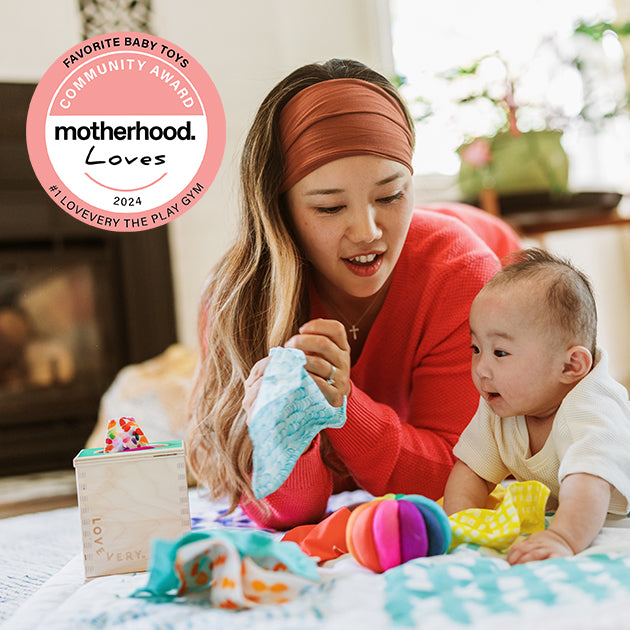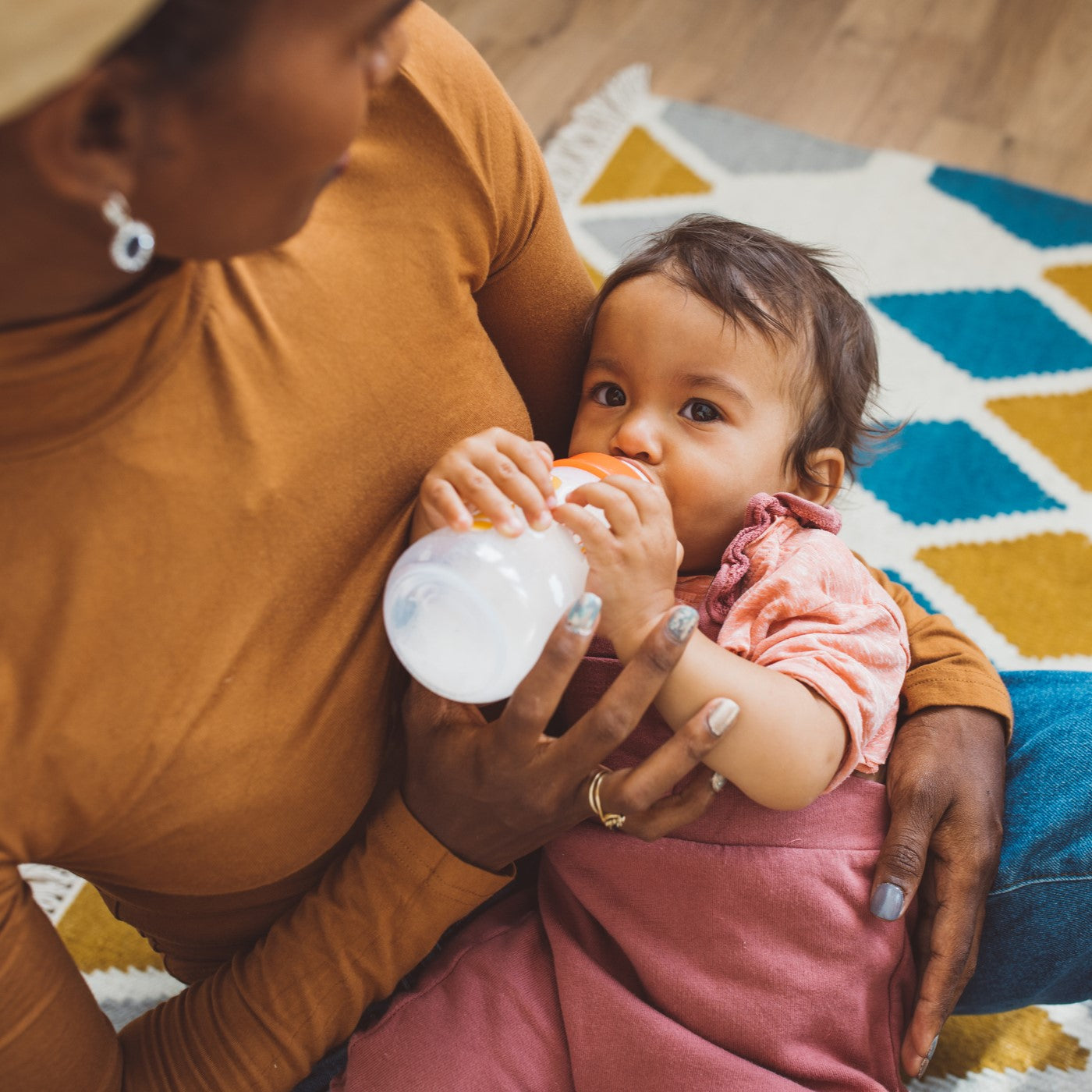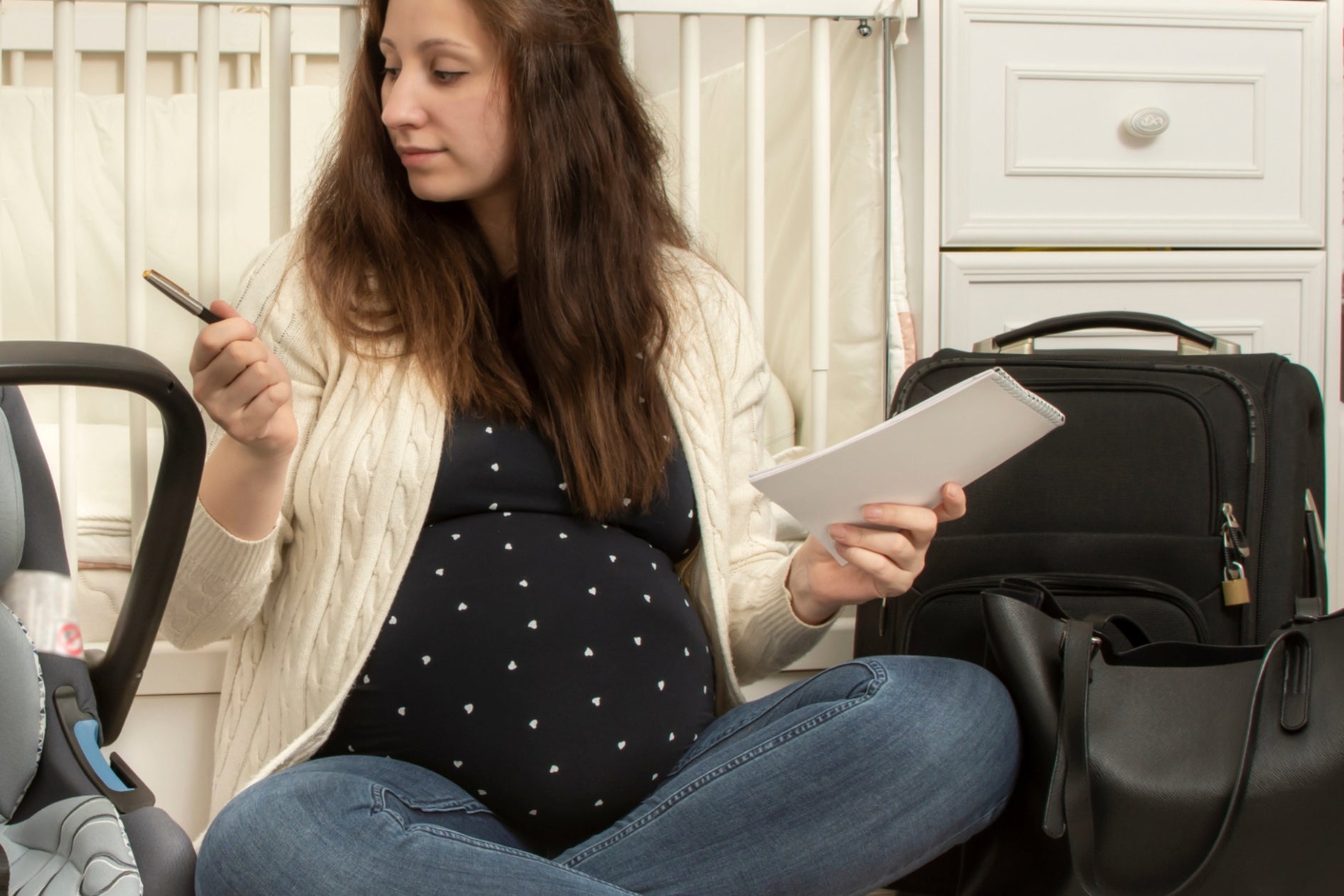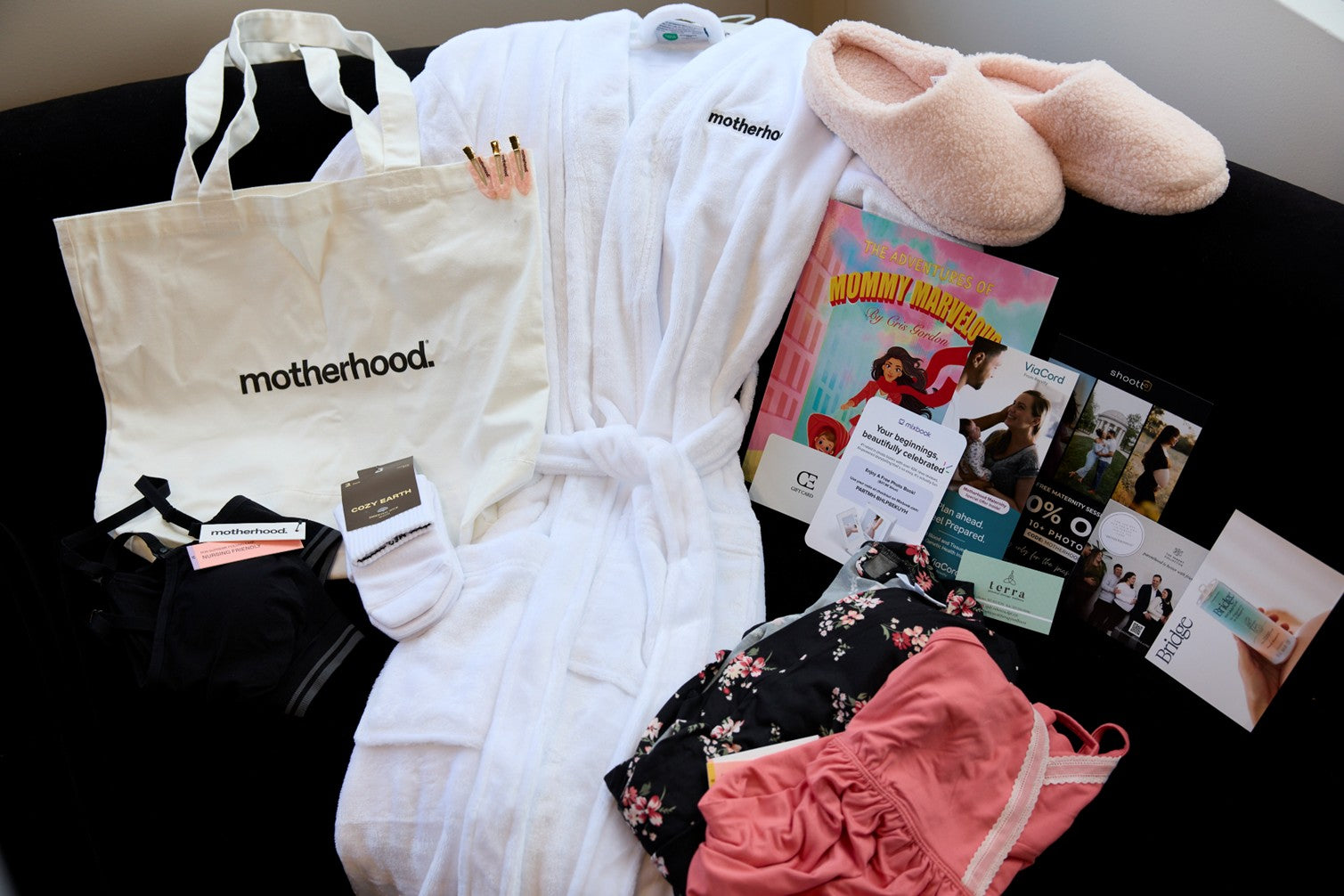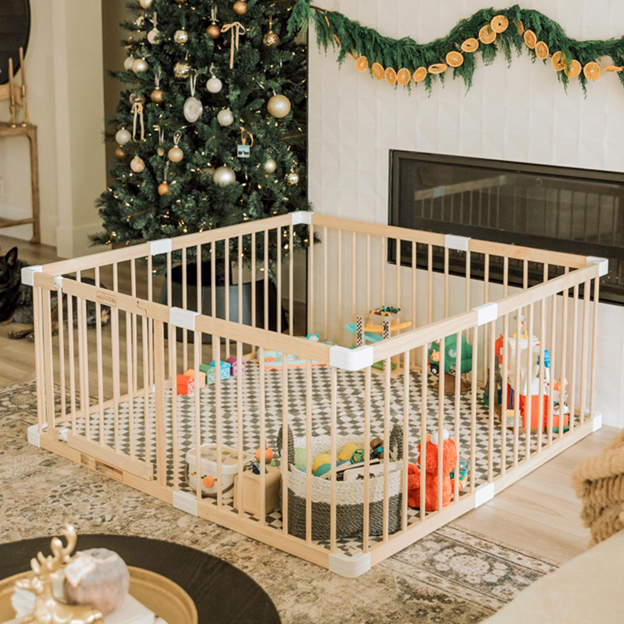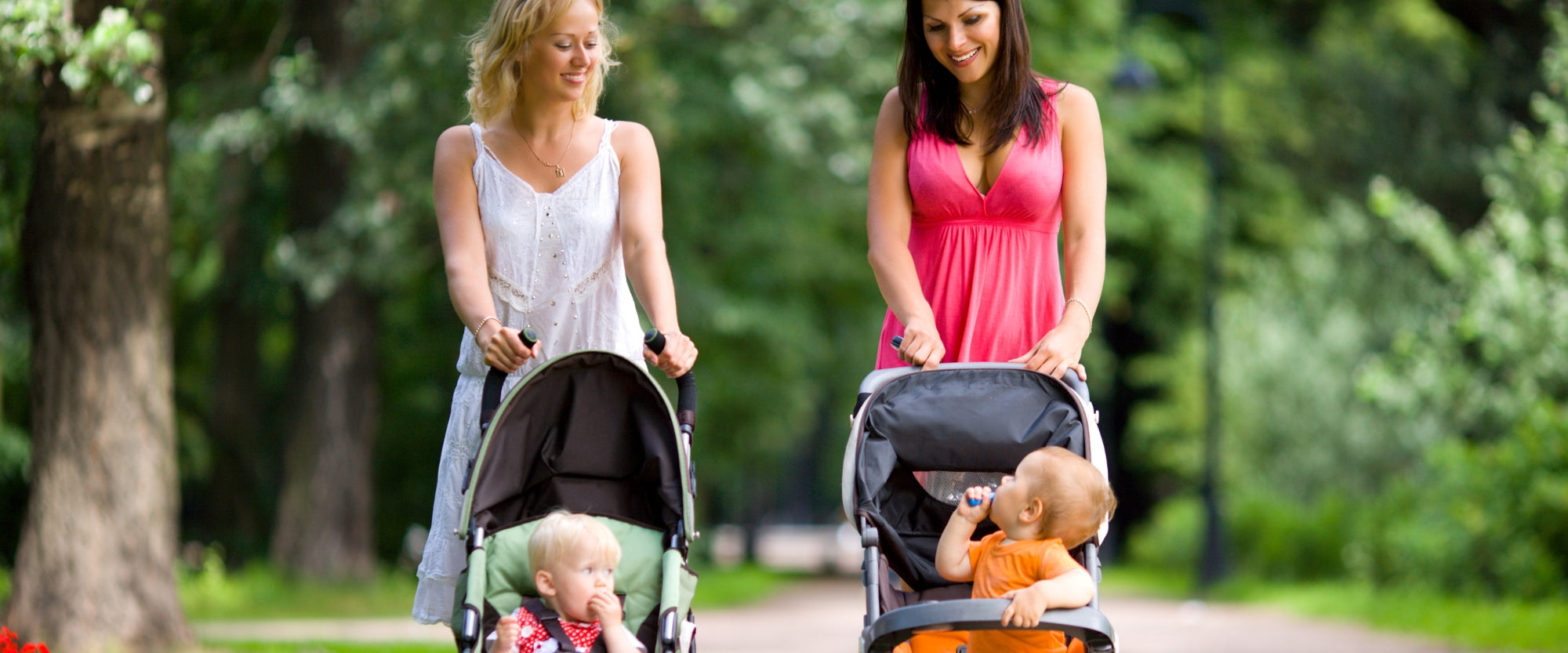On November 19, Motherhood Maternity hosted a highly anticipated live digital event titled Get Ready for Baby: Hospital Bag Essentials for Expecting Moms.
Designed to help expecting mothers prepare for their hospital stay, the event was packed with practical advice and expert tips. Sponsored by ViaCord, and hosted by Cris Gordon, a certified lactation consultant and mom of four, alongside Kara Thompson, a seasoned mother-baby nurse and mother herself, the event covered everything from breastfeeding guidance to hospital bag essentials.
Here’s a full recap for those who missed this informative and engaging session.
What to Pack in Your Hospital Bag: The Essentials
The event began with a discussion of the must-have items for your hospital bag to ensure a comfortable and prepared experience. Cris and Kara emphasized focusing on practical, comforting, and personal items that would make your stay more enjoyable.
Comfortable Clothing for After Birth
Both experts highlighted the importance of packing soft, comfortable clothing for postpartum recovery. Cris mentioned how much she’s been loving her Motherhood Maternity Scuba Sweatshirt set since giving birth, calling it her go-to outfit for comfort and ease. Kara reiterated the value of nightgowns and loose-fitting, nursing-friendly robes, which make moving around and feeding your baby easier after birth.
Toiletries and Personal Care
A toothbrush is one item Cris and Kara strongly recommended packing. Hospital-provided toothbrushes are often basic, so bringing your own will help you feel more refreshed. Along with a toothbrush, pack your favorite toiletries, such as lip balm, shampoo, and lotion, to give yourself a sense of normalcy during your stay.
Nightgowns for Postpartum Comfort
Nightgowns were deemed an essential item for any hospital bag. They’re not only comfortable but also practical, especially for breastfeeding moms. Kara mentioned that many moms prefer their own clothes to hospital gowns, making nightgowns a practical and comforting option.
Sound Machines and Comfort Items
To create a relaxing environment, Cris and Kara suggested bringing items that make you feel at home. A sound machine or white noise device can help you sleep better in an unfamiliar hospital setting. Personal items like a favorite pillow or blanket can also make a big difference in helping you feel more at ease.
Breastfeeding Essentials and Tips
Cris provided expert guidance on breastfeeding, offering helpful suggestions for moms who plan to nurse their babies.
Bring Your Breast Pump
For moms planning to breastfeed, Cris suggested packing your personal breast pump. While the hospital will have medical-grade pumps available, bringing your own allows you to get familiar with it and receive guidance from nurses or lactation consultants on proper use. Hospital staff can teach new moms how to use their pumps effectively, which can be incredibly helpful in those first few days after delivery.
Utilize the Hospital’s Medical-Grade Pumps
Many hospitals offer access to medical-grade breast pumps, and Cris encouraged moms to take full advantage of this while they’re there. These high-efficiency pumps can help establish your milk supply, especially if your baby has trouble latching or if you need to pump early.
Ask for Help
One of the key messages Cris shared was to not hesitate to ask for help with breastfeeding. The hospital staff, including lactation consultants, are there to support new moms and help guide them through the early stages of breastfeeding. It’s important to feel confident, and the hospital environment is an excellent place to learn and get support.
Cord Blood Banking with ViaCord
The event sponsor, ViaCord, supported the discussion about cord blood banking, a topic that Cris shared valuable insights on during the event. Cris explained how storing your baby’s cord blood can provide long-term health benefits for your family. Cord blood is rich in stem cells, which can be used in treatments for certain medical conditions. While this decision is a personal one, Cris encouraged attendees to consider learning more about it as part of their preparation for delivery. ViaCord offers services to help families easily collect and store cord blood, providing a potential resource for the future.
Other Hospital Bag Must-Haves
Beyond the basics, Cris and Kara suggested a few additional items that can enhance your hospital experience.
Snacks and Hydration
Bringing snacks and a water bottle is a must. Labor and recovery can take time, so staying nourished and hydrated is crucial. Keeping your own water bottle nearby serves as a helpful reminder to drink plenty of fluids during this period.
Documents
Ensure you have all your important documents, such as your ID, insurance card, and birth plan. Keeping these items in one accessible place will streamline the process when you arrive at the hospital.
Bring Your Breast Pump
For moms planning to breastfeed, Cris suggested packing your personal breast pump. While the hospital will have medical-grade pumps available, bringing your own allows you to get familiar with it and receive guidance from nurses or lactation consultants on proper use. Hospital staff can teach new moms how to use their pumps effectively, which can be incredibly helpful in those first few days after delivery.
Utilize the Hospital’s Medical-Grade Pumps
Many hospitals offer access to medical-grade breast pumps, and Cris encouraged moms to take full advantage of this while they’re there. These high-efficiency pumps can help establish your milk supply, especially if your baby has trouble latching or if you need to pump early.
Ask for Help
One of the key messages Cris shared was to not hesitate to ask for help with breastfeeding. The hospital staff, including lactation consultants, are there to support new moms and help guide them through the early stages of breastfeeding. It’s important to feel confident, and the hospital environment is an excellent place to learn and get support.
Cord Blood Banking with ViaCord
The event sponsor, ViaCord, supported the discussion about cord blood banking, a topic that Cris shared valuable insights on during the event. Cris explained how storing your baby’s cord blood can provide long-term health benefits for your family. Cord blood is rich in stem cells, which can be used in treatments for certain medical conditions. While this decision is a personal one, Cris encouraged attendees to consider learning more about it as part of their preparation for delivery. ViaCord offers services to help families easily collect and store cord blood, providing a potential resource for the future.
Other Hospital Bag Must-Haves
Beyond the basics, Cris and Kara suggested a few additional items that can enhance your hospital experience.
Snacks and Hydration
Bringing snacks and a water bottle is a must. Labor and recovery can take time, so staying nourished and hydrated is crucial. Keeping your own water bottle nearby serves as a helpful reminder to drink plenty of fluids during this period.
Documents
Ensure you have all your important documents, such as your ID, insurance card, and birth plan. Keeping these items in one accessible place will streamline the check-in process.
Car Seat for Baby
Finally, don’t forget the car seat! Hospitals require you to have a car seat properly installed before you leave, so ensure it’s set up and ready to go ahead of time.
Exciting Giveaway for Attendees
The event also featured a giveaway for 15 lucky attendees, each winning a gift bag valued at $450! These bundles included hospital bag essentials and goodies from renowned brands like:
- Le Sport Sac
- Kohl’s
- Monica and Andy
- Toddlekind
- Peter Thomas Roth
- Isotoner
The gift bags were designed to help new moms feel confident and prepared for their hospital stay.
Final Thoughts
Motherhood Maternity’s Get Ready for Baby: Hospital Bag Essentials for Expecting Moms live digital event was a valuable resource for expecting moms, offering practical tips and emotional support for navigating the hospital experience. From hospital bag essentials to breastfeeding advice and insights on cord blood banking, the event empowered attendees with the knowledge and confidence they need as they prepare for their big day.
The key takeaway? Focus on what brings you comfort and peace of mind, whether it’s your favorite nightgown, a sound machine, or knowing you’ve packed everything you’ll need. With a little preparation and the support of your hospital staff, you’ll be ready to welcome your baby with ease.


